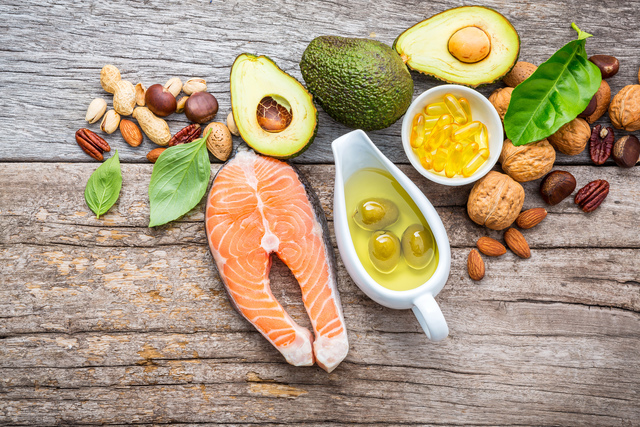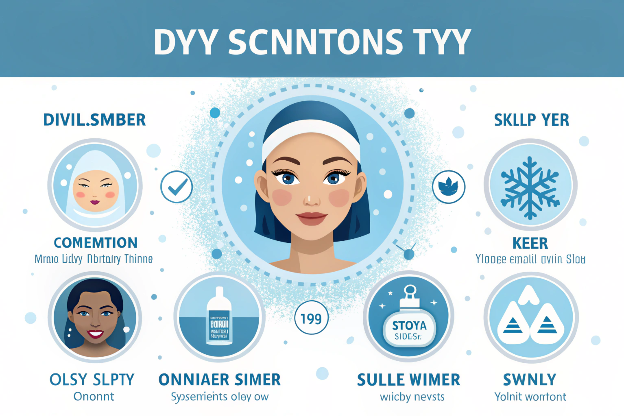Table of Contents
What is the keto diet?
The ketogenic diet, also known as the keto diet, is a high-fat, low-carbohydrate diet that has been shown to have a number of potential benefits for health and weight loss.It works by forcing your body to burn fat for energy instead of carbohydrates.

When you eat fewer carbohydrates than your body needs, it starts to break down stored fat for energy.This process is called ketosis.
During ketosis, your body produces ketone bodies, which are molecules that your body can use for energy.It typically involves drastically reducing carbohydrate intake to 20–50 grams per day while increasing fat intake to 70–80% of your daily calories.
keto diet advantages and disadvantages
Since This diet is a high-fat, low-carbohydrate diet that has gained popularity in recent years, It involves drastically reducing carbohydrate intake and replacing it with fat.This reduction in carbs puts your body into a metabolic state called ketosis.
keto diet advantages
Weight loss:
The keto diet has been shown to be very effective for weight loss. This is because this diet helps to reduce your appetite and increase your metabolism.Weight loss formula Improved blood sugar control.
This diet can help improve blood sugar control in people with diabetes.Studies have shown that people who follow ketogenic diets can lose significantly more weight than people who follow low-fat diets.
Improved blood sugar control and reduced risk of Cancer:
Ketogenic diets can help improve blood sugar control in people with diabetes.This is because ketone bodies can help reduce the need for insulin, a hormone that helps the body use glucose for energy.
Some research suggests that this may help reduce the risk of certain types of cancer, such as brain cancer and colon cancer.
Reduced risk of seizures:
Ketogenic diets have been used for decades to treat epilepsy, a neurological disorder that causes seizures.Studies have shown that This diet can be very effective at reducing the frequency of seizures in children and adults.
Some studies have shown that ketogenic diets may help reduce the risk of heart disease by improving cholesterol levels and blood pressure.However, more research is needed to confirm these findings.
Reduced risk of heart disease and inflammation:
Some studies have shown that ketogenic diets may help reduce the risk of heart disease by improving cholesterol levels and blood pressure.
This eating model may help reduce inflammation in the body.This is because ketone bodies can help reduce the production of inflammatory cytokines.
Improved cognitive function and mood
Some research suggests that This diet may help improve cognitive function in people with Alzheimer’s disease and other neurological disorders.
Some people who follow the keto diet report experiencing an improved mood.This may be due to the fact that This eating model can help to reduce inflammation and improve gut health.
Improved acne and Increased energy levels
The keto diet may help to improve acne by reducing inflammation and by improving the gut microbiome.
Many people who follow This eating model report feeling more energized and having less fatigue.This is because ketone bodies can be a more efficient source of energy for the brain and body than glucose.

Disadvantages of the keto diet
The keto diet is not appropriate for everyone.It is generally safe for most people, but it can cause some side effects, especially in the first few weeks of following the diet.These side effects may include:
Keto flu:
This is a temporary group of symptoms that can occur when you first start the diet.Symptoms can include fatigue, headache, muscle cramps, and constipation.
Digestive problems:
The keto diet can cause some digestive problems, such as diarrhea, constipation, and bloating.
Long-term effects:
The long-term effects of the keto diet are not fully known.Some studies have shown that This model may increase the risk of kidney stones.It is important to talk to your doctor before starting This eating model , especially if you have any health conditions.
is This eating model plan safe?
This eating model is generally considered safe for most healthy adults when followed in the short term.However, there are some potential risks and side effects to be aware of.
Long-term risks and side effects
The long-term effects of the keto diet are not fully known.However, there are some concerns that the diet may increase the risk of heart disease, kidney disease, and osteoporosis.
Who should not follow This eating model ?
The keto diet is not appropriate for everyone.It is especially important to talk to your doctor before starting the diet if you have any of the following conditions:
Diabetes: This eating model can cause blood sugar levels to drop too low in people with diabetes.
Pancreatitis: The keto can worsen pancreatitis.
Gallbladder problems: This eating diet can increase the risk of gallbladder stones.
Kidney disease: The keto diet can put extra strain on the kidneys.
Thyroid problems: This eating model can interfere with thyroid function.
Eating disorders: This eating model can trigger or worsen eating disorders.
Pregnancy or breastfeeding: The The eating model is not safe for pregnant or breastfeeding women.
What foods are in a keto diet?
The keto diet is a high-fat, low-carbohydrate diet that forces your body to burn fats rather than carbohydrates for energy.
Foods to eat on a keto diet:
Here are some specific keto diet food ideas:
Breakfast: Eggs, omelets, bacon, sausage, avocado toast, yogurt with nuts and seeds.
Lunch: Salad with grilled chicken or fish, keto-friendly soup, veggie burger on a lettuce bun.
Dinner: Steak, pork chops, chicken kabobs, salmon, shrimp scampi.

It is important to note that the keto diet is not a one-size-fits-all approach.The specific foods and macronutrient ratios that work best for you will depend on your individual needs and goals.It is always best to consult with a healthcare professional before making any major changes to your eating.
Additional tips for following a keto diet:
1-Make sure to drink plenty of fluids.This will help to prevent dehydration, which can be a common side effect of This eating model .
2- Eat plenty of fiber-rich foods.This will help you to feel full and satisfied, and it will also help to regulate your digestive system.
3-Be patient.It can take some time to adjust to the keto diet, but it is worth it if you are committed to reaching your weight loss goals.With a little planning and effort, you can successfully follow This eating model and reap its benefits.
What are the rules for keto diet?
The keto diet is a high-fat, low-carbohydrate diet that involves drastically reducing carbohydrate intake and replacing it with fat.
Here are the basic rules for This eating type:
1-Limit your net carbs to 20-50 grams per day.Net carbs are total carbs minus fiber.Fiber is a type of carbohydrate that your body cannot digest, so it does not count towards your net carb intake.
2-Consume 70-80% of your calories from fat.This means that you should be eating a lot of healthy fats, such as those found in avocados, nuts, seeds, and olive oil.
3-Eat moderate amounts of protein.Protein should make up 20-30% of your calories.This means that you should be eating lean protein sources, such as chicken, fish, and eggs.
Here are some additional tips for following the keto diet:
1-Read food labels carefully.
2-Pay attention to the net carb count, not just the total carb count.
3-Plan your meals ahead of time.This will help you to stay on track and avoid making unhealthy choices.
4-Find a support system.Having people to support you can make it easier to stick to the eating type.
5-Don’t be afraid to experiment.There are many different ways to follow the keto diet, so find what works best for you.
6-Talk to your doctor.The keating type is not appropriate for everyone, so it is important to talk to your doctor before starting the eating type, especially if you have any health conditions.
keto diet side effects
The keto diet is a high-fat, low-carbohydrate meal that has been shown to be effective for weight loss and improving some health conditions.However, it is important to be aware of the potential side effects of the keto diet.Common side effects of the keto diet include:
Nutritional deficiencies: It can be difficult to get all of the nutrients you need on a keto diet, so it is important to take a multivitamin and mineral supplement.
Gallbladder problems: The eating type can increase the risk of gallbladder stones or gallbladder attacks.
Pancreatitis: The keto diet may worsen pancreatitis.
Bone loss: There is some concern that the keto diet may increase the risk of bone loss.However, more research is needed to confirm this finding.
Elevated cholesterol levels: The keto meal may increase LDL cholesterol levels in some people.
Irregular periods: The keto diet may cause irregular periods in women.
It is important to note that these are just potential side effects of the eating type, and not everyone will experience them.Most people tolerate the diet well and experience no significant side effects.
If you are considering trying the keto diet, it is important to talk to your doctor first to make sure it is safe for you.They can help you to develop a plan that is right for you and monitor you for any potential side effects.
Here are some tips for minimizing the side effects of the keto diet:
Start slowly: Don’t try to cut out all carbs at once.Instead, gradually reduce your carb intake over a few weeks.
Drink plenty of fluids: This will help to prevent dehydration, which can contribute to some of the side effects of the diet.
Eat plenty of fiber-rich foods: Fiber can help to regulate your digestive system and reduce constipation.
Take a multivitamin and mineral supplement: This can help to ensure that you are getting all of the nutrients you need.
Monitor your blood sugar levels: If you have diabetes, it is important to monitor your blood sugar levels closely while on this eating type.
Be patient: It can take some time to adjust to the keto method.
Don’t give up if you experience some side effects in the beginning.If you are concerned about the side effects of the keto plan, talk to your doctor.They can help you to decide if the eating plan is right for you and provide you with support and guidance.
keto plan for weight loss
Yes, the plan is an effective method for weight loss.Studies have demonstrated that people who follow the keto diet can lose significantly more weight than those who adhere to low-fat diets.
This is because the keto plan forces your body to burn fat for energy instead of carbohydrates, leading to a reduction in overall calorie intake.
The keto diet’s ability to promote weight loss is attributed to several factors:
Reduced Carbohydrate Intake:
The keto diet’s low carbohydrate content leads to a decrease in insulin production, a hormone that promotes fat storage.By lowering insulin levels, the body shifts its energy source from carbohydrates to stored fat.
Increased Fat Burning:
The keto diet’s high fat content promotes ketosis, a metabolic state in which the body produces ketone bodies from fat.Ketone bodies serve as an alternative energy source for the brain and body, further reducing reliance on carbohydrates and promoting fat burning.
Appetite Suppression:
The keto method has been shown to suppress appetite, which can contribute to weight loss by reducing overall calorie intake.
Improved Metabolic Efficiency:
Studies suggest that the keto diet may improve metabolic efficiency, allowing the body to burn more calories at rest.
Water Loss:
The initial weight loss on the keto diet is often attributed to water loss.As the body transitions into ketosis, it loses stored glycogen, which binds to water.This glycogen depletion leads to a decrease in water weight.
While the keto plan can be an effective weight loss tool, it’s important to approach it with caution and under the guidance of a healthcare professional.The keto diet is not suitable for everyone and may have potential side effects.
Remember, weight loss is a complex process, and the keto diet is just one potential tool.
A comprehensive approach that includes dietary changes, physical activity, and behavioral modifications is often more successful in achieving and maintaining weight loss goals.
Here are some key considerations for weight loss on the keto plan:
Individual Response: Weight loss results vary from person to person, and the keto plan may not be equally effective for everyone.
Long-Term Sustainability: Maintaining weight loss requires a sustainable approach, and the keto method may not be a suitable long-term lifestyle for everyone.
Potential Side Effects: Be aware of potential side effects like the keto flu, digestive issues, and nutrient deficiencies.
Medical Supervision: Consult with your doctor before starting the keto plan, especially if you have any underlying health conditions.
Gradual Transition: Gradually reduce carbohydrate intake and increase fat intake to ease into the keto diet and minimize side effects.
Hydration and Nutrient Supplementation: Ensure adequate hydration and consider taking a multivitamin to avoid nutrient deficiencies.
Monitoring and Adjustments: Monitor progress, adjust macronutrient ratios if needed, and seek medical advice if any concerns arise.
Conclusion
The keto diet is a high-fat, low-carbohydrate diet that can be an effective way to lose weight.This can lead to significant weight loss, especially in the short term.However, the keto diet is not without its risks.
Some potential side effects include the keto flu, digestive problems, and nutritional deficiencies.It is important to talk to your doctor before starting the keto diet, especially if you have any underlying health conditions.
I would recommend the keto diet to someone who is looking for a quick and effective way to lose weight.However, I would also caution them to be aware of the potential risks and side effects before starting the diet.
Frequently Asked Questions
Q1. What is the ketogenic (keto) diet, and how does it work?
The ketogenic diet is a high-fat, low-carbohydrate eating plan designed to induce a state of ketosis in the body.
Ketosis occurs when the body burns fat for fuel instead of carbohydrates, leading to increased production of ketones.
By drastically reducing carbohydrate intake and increasing fat consumption, the keto diet aims to shift the body’s metabolism to rely primarily on fat for energy.
Q2. What are the main principles of the keto diet, and what foods are typically included or excluded?
The keto diet typically consists of high-fat foods such as meats, fish, eggs, cheese, butter, oils, nuts, seeds, and low-carbohydrate vegetables.
Foods that are high in carbohydrates, including grains, starchy vegetables, fruits, sugars, and processed foods, are usually restricted or eliminated on the keto diet.
The main principles of the keto diet involve maintaining a very low-carbohydrate intake, moderate protein intake, and high fat intake.
Q3. What are some common myths or misconceptions about the keto diet?
There are several myths and misconceptions surrounding the keto diet, including the belief that it is a quick fix for weight loss, that it requires eating large amounts of unhealthy fats, or that it can lead to nutrient deficiencies.
Additionally, some people mistakenly believe that all carbohydrates are inherently bad and should be avoided, which is not necessarily true.
It’s important to separate fact from fiction when considering the keto diet and to consult reliable sources for accurate information.
Q4. What are the potential benefits and drawbacks of the keto diet?
The keto diet has been associated with various potential benefits, including weight loss, improved blood sugar control, increased energy levels, and reduced risk of certain chronic diseases.
However, it may also have drawbacks, such as nutrient deficiencies, gastrointestinal issues, difficulty adhering to the restrictive eating plan, and potential adverse effects on cholesterol levels.
The benefits and drawbacks of the keto diet can vary depending on individual factors such as health status, lifestyle, and dietary preferences.
Q5. Is the keto diet suitable for everyone, and are there any risks or precautions to consider?
While the keto diet may offer benefits for some individuals, it may not be suitable for everyone, especially those with certain medical conditions or dietary restrictions.
People with diabetes, kidney disease, liver disease, or other health issues should consult with a healthcare professional before starting the keto diet.
Additionally, it’s essential to follow the keto diet safely and responsibly, ensuring adequate intake of essential nutrients and monitoring for any adverse effects or complications.





